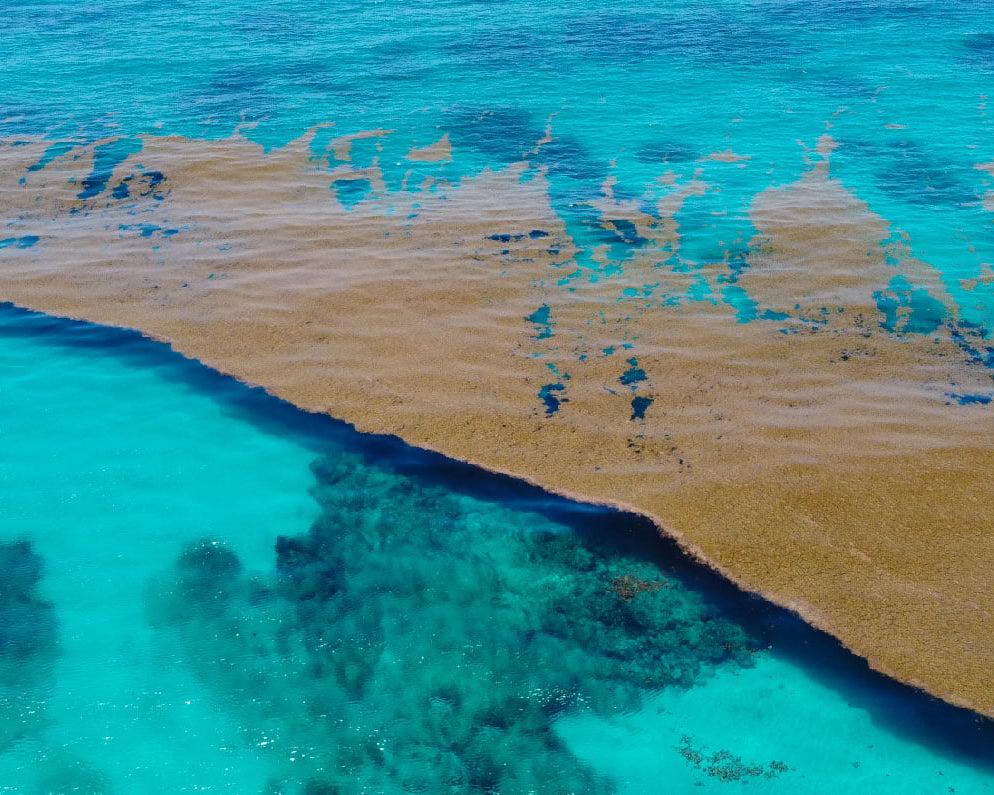Seaweed solution addresses climate change

A UK-based aquaculture business aims to remove billions of tonnes of carbon from the atmosphere each year by growing and harvesting floating seaweed in the Atlantic Ocean.
Seafields is developing and testing new technologies focused on growing and capturing sargassum, an abundant seaweed that floats in masses without attaching to the seafloor. The company has set out how it intends to remove over 1Gt (one billion metric tonnes) of CO2 from the atmosphere each year by 2025.
Seafields says its approach, which will be showcased in Glasgow next month at the global COP26 conference, will radically tackle the challenge of climate change. It includes the tracking, harvesting, baling and storage of sargassum that has been growing in aquafarms in the South Atlantic Ocean gyres.
Baling and storing large quantities of the seaweed in the depths of the Atlantic Ocean will trap its physical carbon away for thousands of years, and research is currently ongoing to determine the best way to do this without damaging the ecosystem. Once the process is set up, it will tackle past, as well as ongoing, emissions.
Additionally, to help the global effort in lowering CO2 emissions, Seafields has partnered with Puerto Rico-based C-Combinator to extract valuable alternatives for fossil-fuel based products before the seaweed bales are sunk.
Following COP26, Seafields will develop a pilot project in Cape Verde to test upwelling pipes which transport ocean nutrients from the deep sea to the surface, a crucial aspect in growing sargassum. The company then plans to begin aquafarming operations by 2023.
Dr Mar Fernández, a marine microbiology expert and Seafields’ chief scientific officer, says: “While tree-planting and other land-based initiatives are all making a contribution, the ocean represents 70 per cent of the Earth’s surface and offers us the best possible solution in addressing climate change. With carefully managed processes in place, we can cultivate sargassum off-shore by irrigating the surface with nutrient-rich deep waters. Pelagic sargassum is a seaweed that is unique in its ability to float freely and sequester carbon efficiently due to its rapid growth rate and high carbon to nitrogen ratio.
“We will store compressed bales of sargassum in selected places at the seafloor to ensure long-term removal of billions of tonnes of carbon from the atmosphere without creating an environmental burden on the deep sea. Aquafarming will also promote the restoration of marine ecosystems, helping many ocean species to survive and thrive, and produce seaweed which can be utilised to create useful and sustainable consumer goods.”
The company has described the project as “the ocean equivalent of planting trees across the entire Sahara Desert” and has said that large-scale aquafarming “will create multiple revenue streams, employ large numbers of people, replenish our oceans and, importantly, make a significant impact in addressing climate change”.










